
Starting June 1st, 2023 Our warehouse fee will be $0.65/cubic foot per month
In effort to lower the warehouse storage fee during inflation, we have went narrow aisle racking.This construction took us four months but the project is finally completed. With narrow aisle racking, we are able to drop storage by 24%.We as partners will go through this inflation together.
01/03/2024
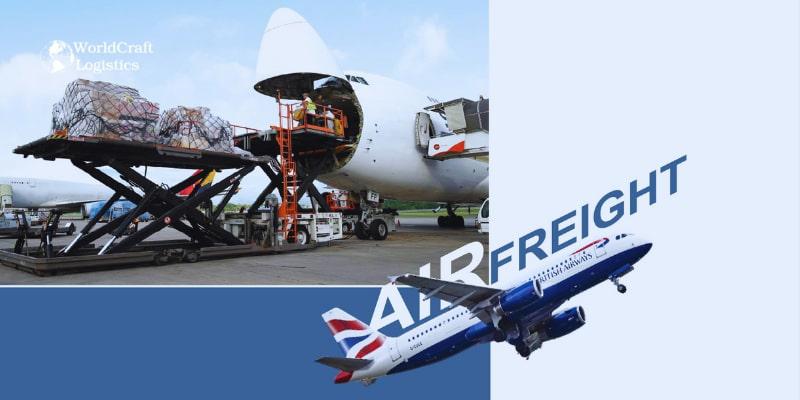
Air freight encompasses the transportation of products and goods (cargo) via aircraft. Various modes of air freight are available, including passenger aircraft, the cargo hold of a passenger plane, or dedicated commercial cargo aircraft. The process of air freight transportation initiates at the airline terminal, where the selected air freight company takes charge of receiving the cargo. Subsequently, the cargo undergoes preparation and is loaded onto the aircraft for transport.
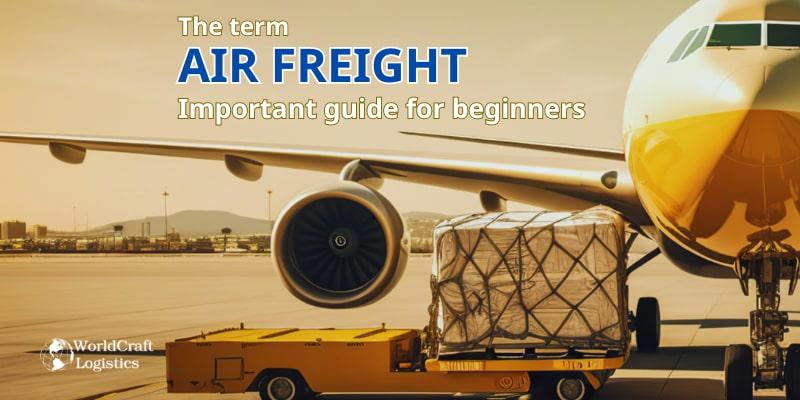
Air freight, synonymous with air cargo, refers to the transportation of goods through an aircraft. This method of shipping becomes particularly invaluable for swiftly moving express shipments globally. Similar to commercial or passenger airlines, air freight utilizes the same gateways for its operations.
In financial terms, air freight represents the cost associated with transporting goods through the air. As goods move from one location to another, the payment for this movement is termed freight. Hence, air freight specifically pertains to the charges incurred for the air transport of goods.
👉 Air Freight vs Sea Freight: Which is Best for Your Choice
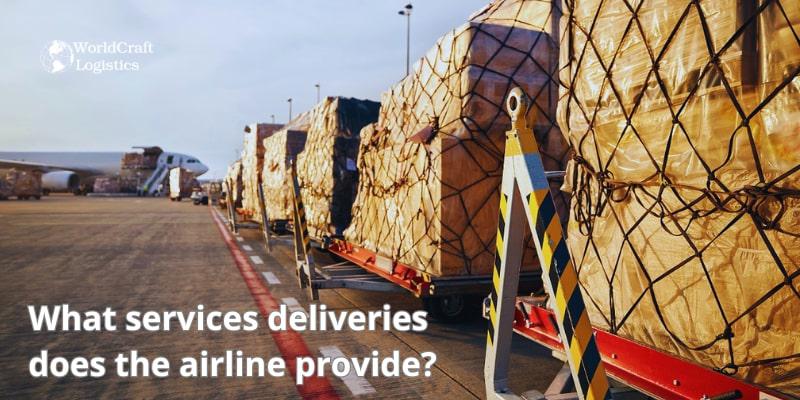
Airlines provide a range of services for air freight transportation, catering to different needs and priorities:
Commercial cargo services accommodate large palletized cargo, boxes, vehicles, machinery, and at times, even animals. These services come in various sizes, ranging from small to medium to oversized shipments. These diverse services offered by airlines allow shippers to choose the most suitable and cost-effective option based on the nature, urgency, and value of their cargo.
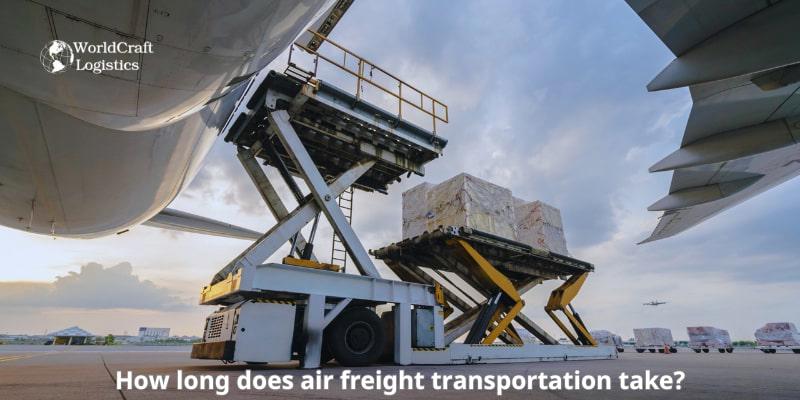
The duration of air freight transportation is contingent on the origin and destination of the goods. Cross-country air freight can reach its destination within an impressive six to seven hours, particularly for critical services. International shipping, while slightly longer, still represents a swift mode of transport.
However, it's crucial to note that the mentioned time frames exclusively pertain to the actual air transportation phase. Additional time is required for the transportation of goods to and from the aircraft, as well as to their final destination once the aircraft has landed. Despite being the fastest method for exporting goods, unforeseen disruptions or shutdowns can potentially extend the overall transit time, with goods taking up to a week or longer to reach their destination under such circumstances.
While air freight accommodates a wide array of goods, the decision on what is typically shipped by this method is often driven by two key factors: speed and expense. Here is a list of common goods frequently transported by air:
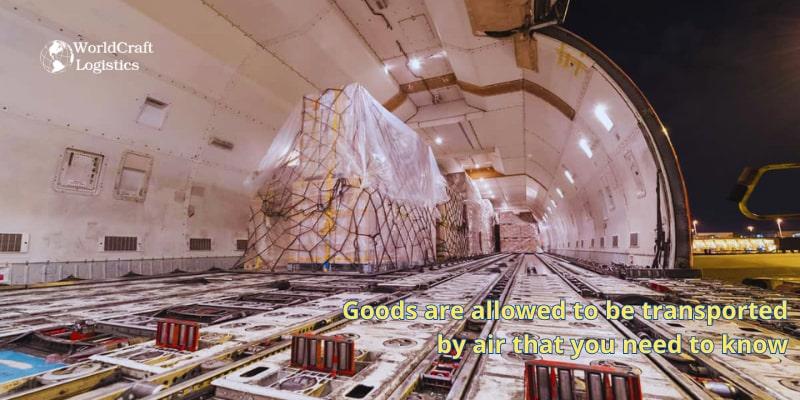
However, certain goods may be too large or heavy for air shipment. In addition to size considerations, there are stringent regulations for goods transported by aircraft, particularly for flammable, hazardous, and dangerous items like magnets, batteries, and cellphones. Each airline establishes its own policies regarding acceptable cargo. The FAA plays a pivotal role in determining exemptions and regulations for items allowed on aircraft.
In the United States, air freight is governed by TSA and FAA regulations. Exporters aiming to ship goods domestically and internationally are advised to consult with their freight forwarder to ensure full comprehension and compliance with all rules and regulations. A freight forwarding partner can assist in completing documentation and offer packaging services as needed, providing comprehensive support for a smooth and compliant air freight process.
👉 What is a freight forwarder? Important things you need to know
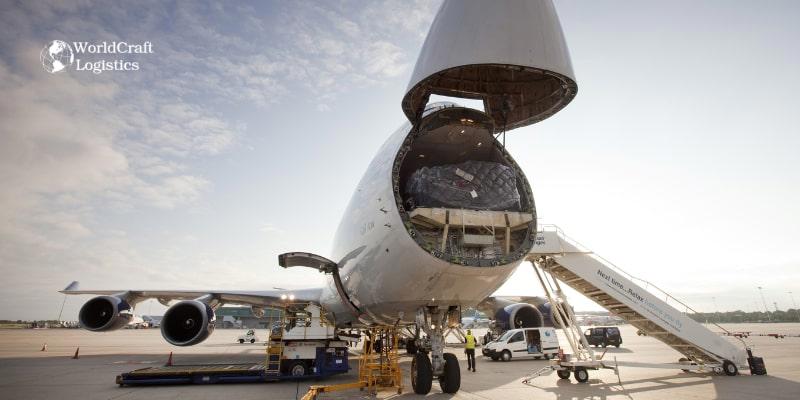
Air freight stands out as the most expensive method for transporting goods, with charges typically determined by weight. To predict air freight costs, consider the following steps:
Initiate the cost prediction process by consulting directly with the chosen carrier. They can provide specific details on their rates and services.
Airfreight rates are often based on volumetric weight, where the volume of the shipment is factored into the weight calculation. This ensures a fair assessment of the space occupied by different types of cargo.
Industry-standard formulas are available to calculate billable volumetric weight accurately. These formulas consider the dimensional size of the cargo, ensuring a comprehensive assessment. For instance, 50 pounds of foam may occupy a different volume than 50 pounds of bricks.
Prices for airfreight vary between airlines and also depend on whether the flight is domestic or international. Understanding these variations is crucial for accurate cost predictions.
In addition to weight-based charges, various flat fees contribute to the overall cost. These fees cover handling, documentation, customs clearance, as well as pickup and delivery services.
According to the World Bank, the demand for air freight is constrained by its high cost, typically ranging four to five times more than road transport and 12 to 16 times more than sea transport. Air freight rates usually fall within the range of $1.50 to $4.50 per kilogram, while the value of air cargo often surpasses $4.00 per kilogram. These cost considerations underline the importance of strategic planning and careful budgeting for businesses opting for air freight services.
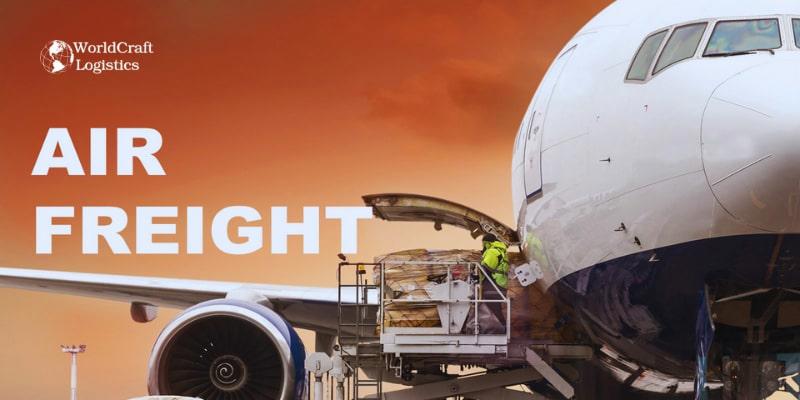
Choosing air freight for shipping is best suited for specific use cases, where the nature of the goods and logistical requirements align with the advantages offered by air transport. Here are situations where air shipping is particularly advantageous:
In summary, air freight is strategically beneficial for transporting high-value, small, time-sensitive, and moisture-sensitive goods. Assessing the specific needs of the shipment and aligning them with the advantages of air transport ensures a more efficient and reliable shipping process.
With practical experience over many years of providing air transport services, Worldcraft Logistics - 3PL company in the US shares with readers some necessary knowledge and instructions about the term "air freight". Through that, we hope you summarize and expand your data sources, contributing to good business development. Thank you for following.
SEO
Digital Marketing/SEO Specialist
Simon Mang is an SEO and Digital Marketing expert at Wordcraft Logistics. With many years of experience in the field of digital marketing, he has shaped and built strategies to effectively promote Wordcraft Logistics' online presence. With a deep understanding of the logistics industry, I have shared more than 500 specialized articles on many different topics.
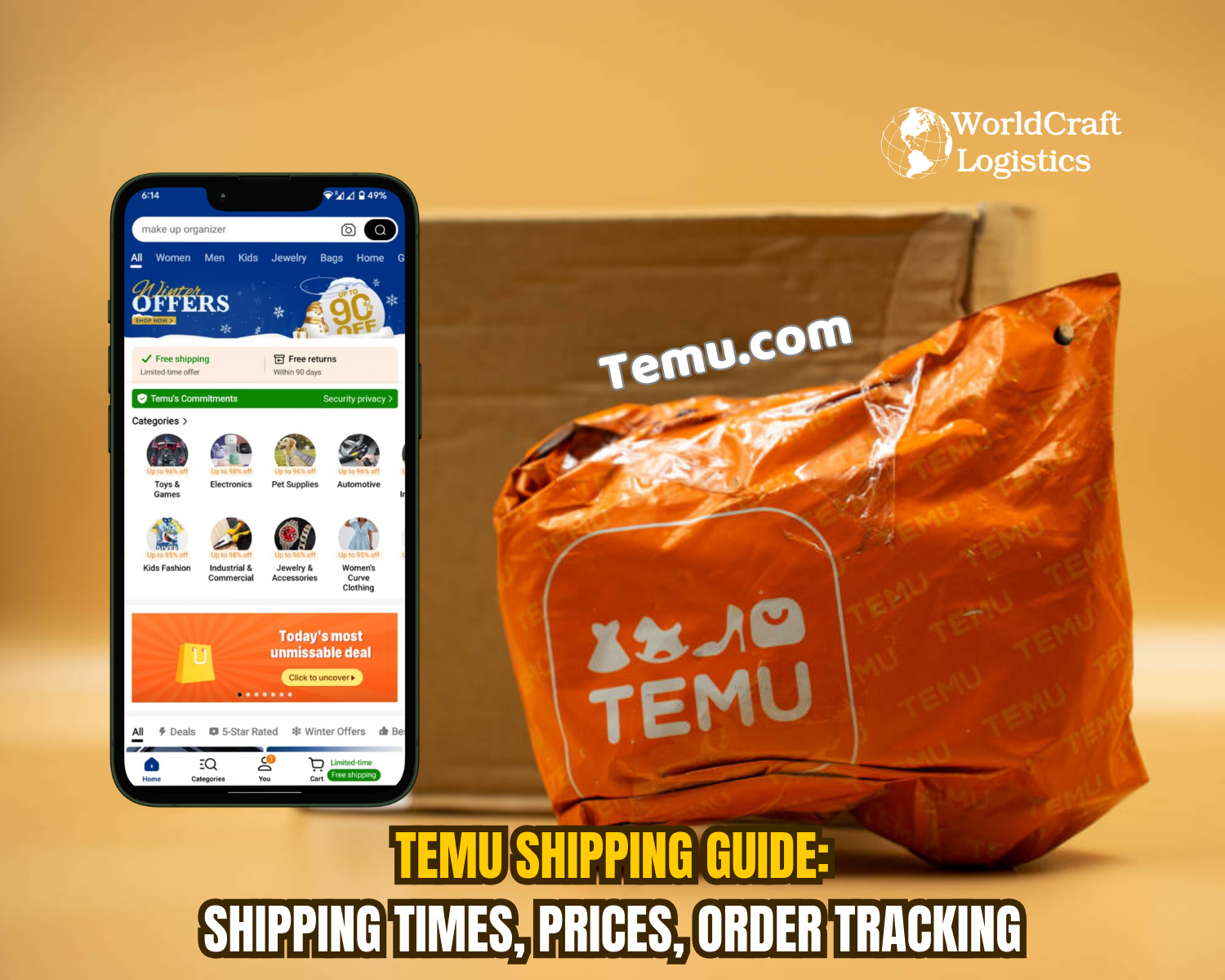
Education
01/05/2025

Education
02/18/2025
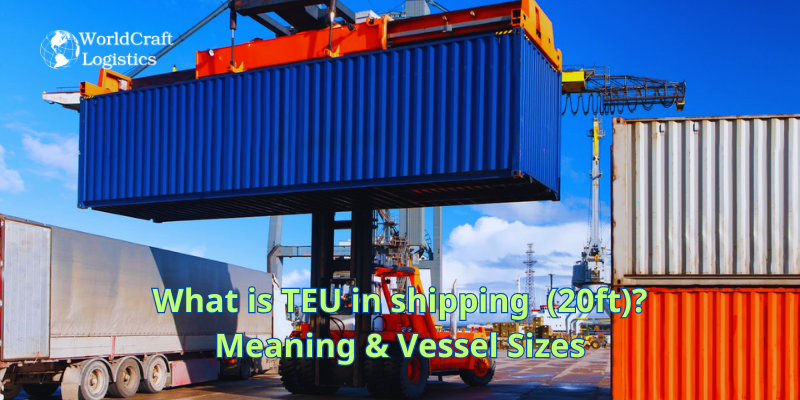
Education
01/01/2024
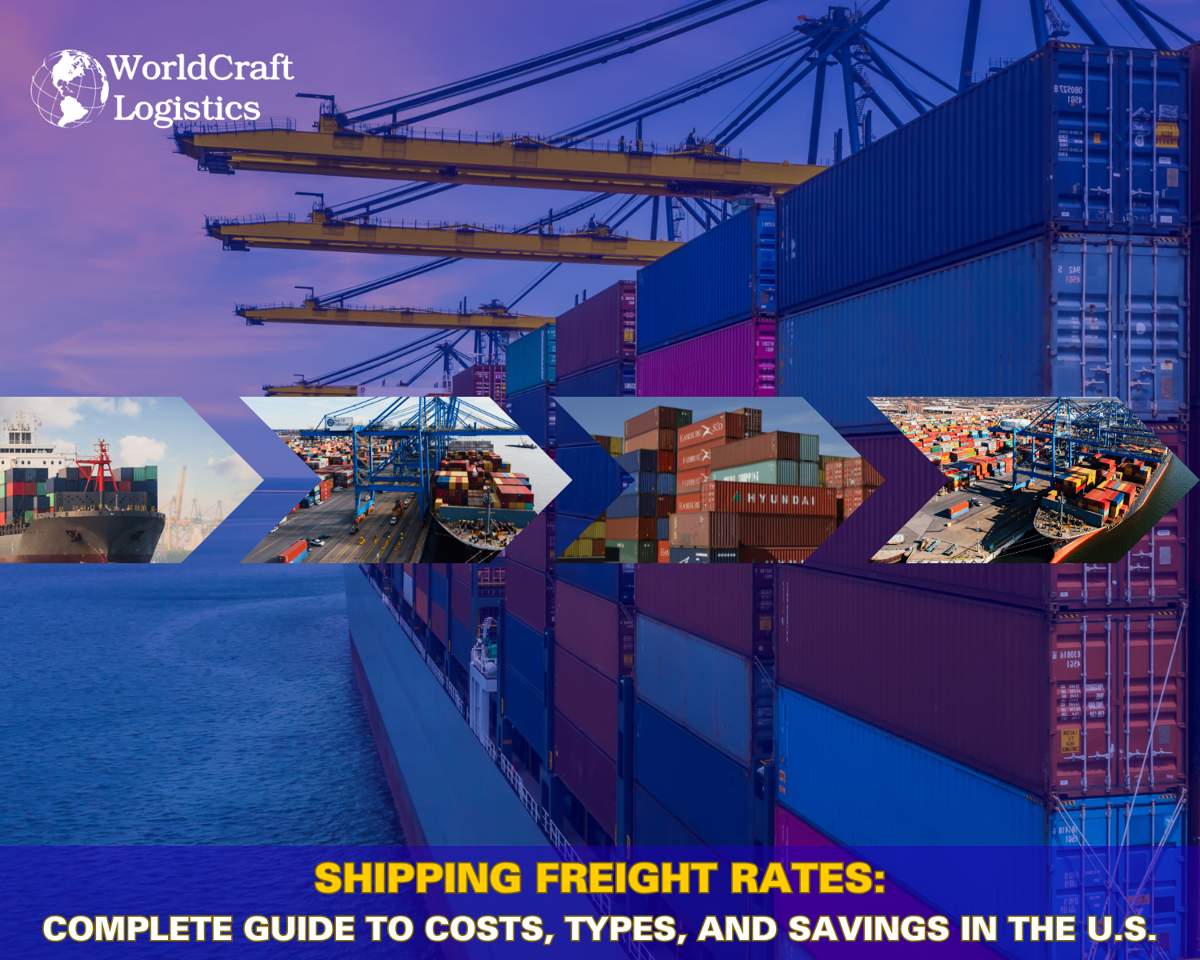
Education
09/09/2025
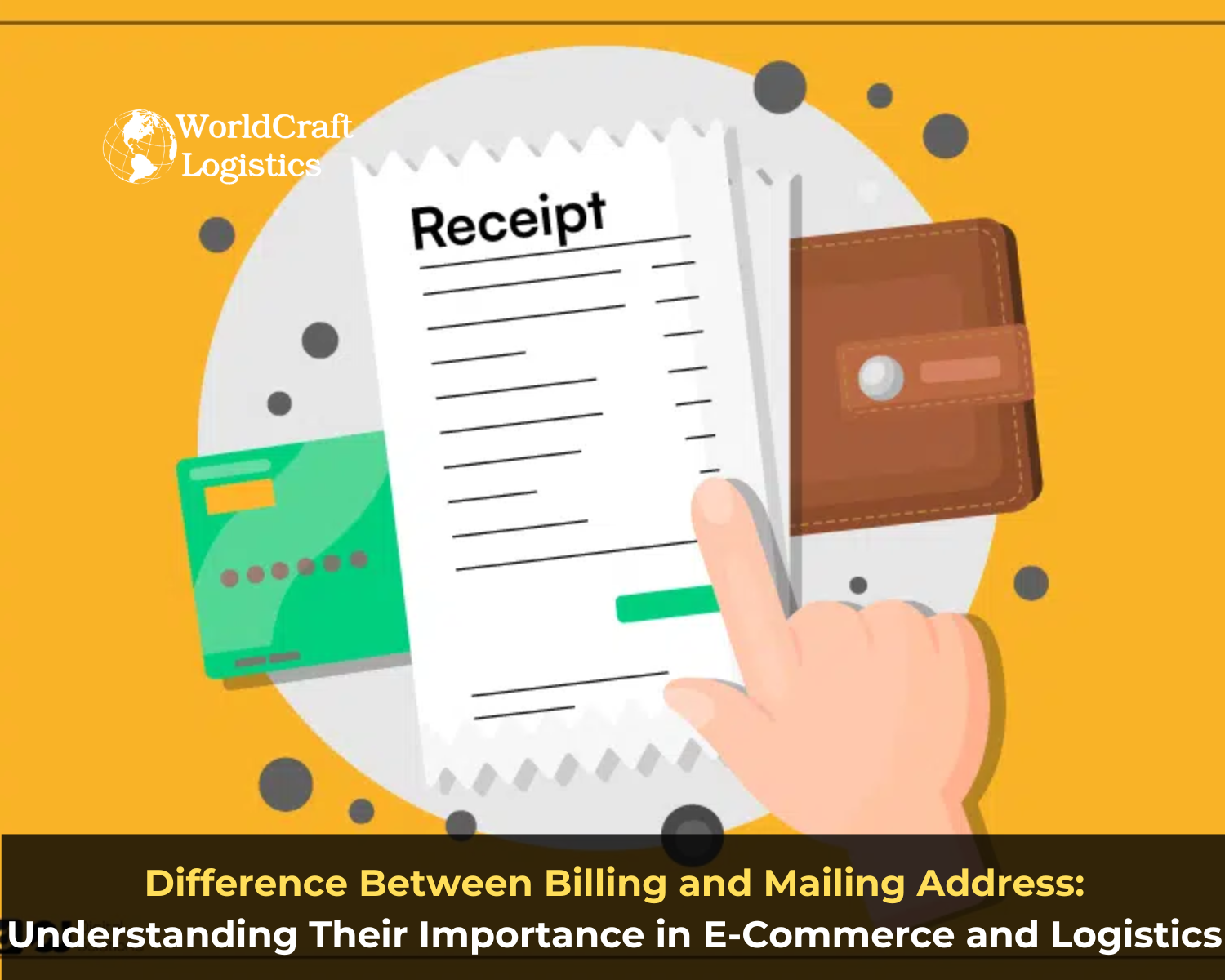
Education
08/28/2024